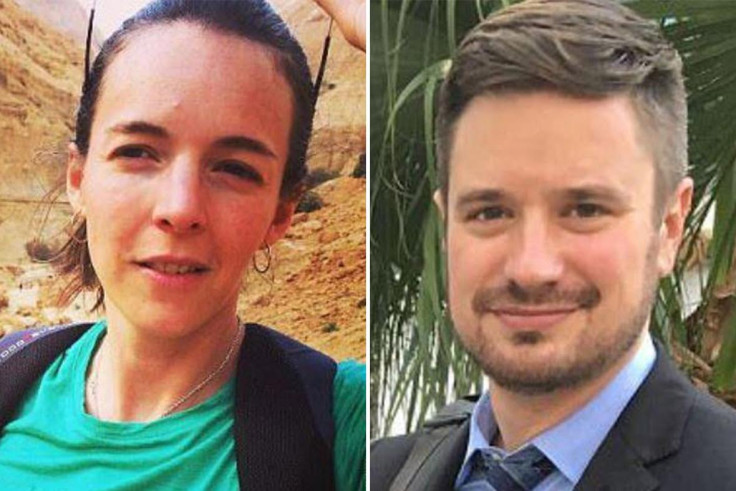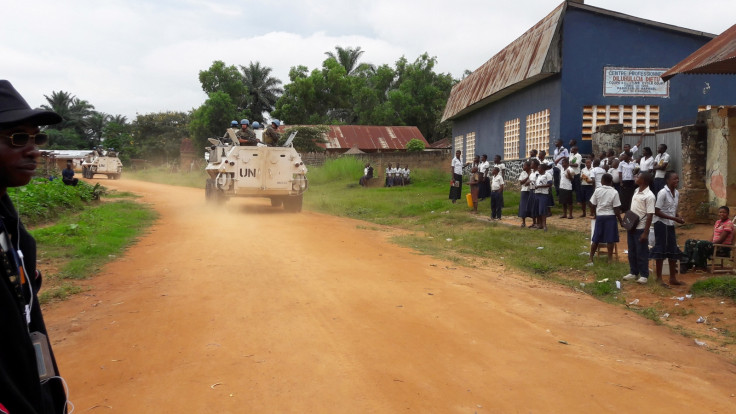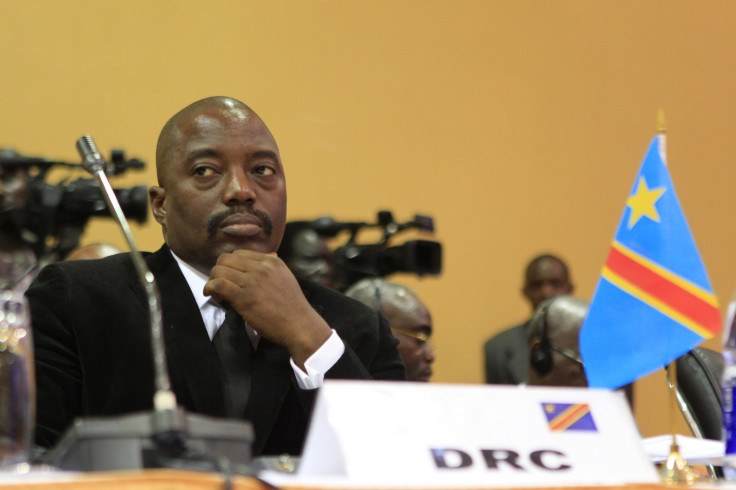Could the 'abduction' of UN investigators mark a turning point in the DRC's rising violence?
Michael Sharp and Zaida Catalan were looking into claims that security forces 'executed' civilians.

UPDATE: It has now been confirmed the two bodies are those of Michael Sharp and Zaida Catalan
The discovery of two Caucasian bodies in a shallow graves in the Democratic Republic of Congo's restive Kasaï Central province may mark a turning point in the rising violence in the African nation, experts have warned, as the country teeters on the bring of war.
There are fears the two unidentified bodies, one male and one female, could match those of two United Nations (UN) experts – Michael Sharp and Zaida Catalan – who have been missing since 12 March. Sharp, 34, is a US national, while Catalan, 36, is Swedish.
The two experts, along with four Congolese colleagues, were travelling in Kasaï after they were instructed by the UN Security Council to investigate reports of human rights violations committed by Congolese security forces against civilians in the south-central province.
Seven-minutes of footage, provided to AFP news agency and circulated on social media by Congolese human rights activists last week, appears to show men dressed in army uniform opening fire on a group of unarmed civilians, killing at least eight of them, including women and children.
Kasaï, in the heart of the DRC, has been plagued by violence between the Congolese security forces and a local militia, Kamuina Nsapu, who are seeking to avenge the death of their leader, Kamuina Nsapu, in August 2016.
For Jordan Anderson, Africa Analyst at business information provider IHS Markit, the targeting of the UN investigators could mark the crossroads in the deepening violence in the country.
"It is unusual for unarmed UN personnel to be killed in DRC, particularly in the Kasaï region, although Kamuina Nsapu militants have clashed on at least two occasions with UN peacekeeping mission (Monusco) troops so far during 2017," Anderson told IBTimes UK.
In addition to footage allegedly showing extra-judicial executions of civilians by soldiers, the UN has condemned the recent discovery of ten mass graves, containing victims of alleged killings by Congolese soldiers in Kasaï, for which activists claim the government "should be held accountable".

"There are only one group of people, in the entire country, who would not want the UN investigating the massacres of innocent people, women and children, committed by the security forces. Only one group of people would want to want to stop anyone attempting to investigate and bring to light the massacres and crimes committed. And that is Kabila and his people," Vava Tampa, a human rights activist and founder of the campaign group Save the Congo!, told IBTimes UK.
"There is not a single ounce of doubt in my mind that if the UN experts are found dead, those responsible are certainly Kabila's people."
While the rights activist acknowledged it is not the first time Westerners are targeted by the regime, he said "it is the first time they would have been kidnapped" – or killed in the unfortunate eventuality of the bodies being identified as those of the two UN Experts.
"Many give the UN an incredibly hard time for some of their failings, but they have done so much good for Congo. If it wasn't for the peacekeeping forces, the situation would have been far worse. If it wasn't specifically for the UN Group of Experts, who the two disappeared belong to, and their reporting since 2004 we would not have been changed the dynamics of these past and present conflicts. If it wasn't for the Group of Experts, we would have not been able to force major powers internationally to change their policy, to look at conflict minerals, to stop foreign support of militia gangs in Congo," Tampa said.
"The UN Group of Experts has contributed, at the very least, to one third of the job we are doing by simply documenting and producing evidence. I simply cannot imagine what their families are going through. My heart and prayers are with their families. We will remember them."

Regardless of who is found to be behind the recent kidnapping of UN personnel, Anderson highlighted how the country is facing the potentially explosive breakdown on 28 March of a political agreement reached on 31 December 2016 between President Joseph Kabila and the opposition. Anger and uncertainty over the delayed elections is behind much of the increased violence.
"Across the DRC, a rebel archipelago is growing, as local militant groups increase the attacks, both on government forces and other militias and communities. These groups aren't co-ordinated with each other, but the overall result of them each being more active is a significant degradation in the country's security situation. Even in historically less restive regions such as the Kasaï and Kongo-Central (Bas Congo), there has been more violence in late 2016 and early 2017," Anderson noted.
"Even without elections being delayed, which is deeply unpopular nationally, the uncertainty created by electoral periods in the DRC (as communities worry about the prospects of 'their' candidates and their access to state power and patronage) usually drives localised violence," the analyst warned. "But announcements of elections being delayed beyond 2017, constitutional changes that would remove presidential term limits, or the breakdown of the Cenco-moderated agreement would also trigger further violence."
While it remains unknown who is behind the abduction of the UN personnel, the Kamuina Nsapu movement is unlikely to be a turning point for violence in the DRC. "Many of its militants are armed only with bladed weapons or are unarmed altogether, particularly their child soldiers, although some have seized or locally-made firearms. This means they largely lack the arms and manpower to capture and hold major cities in the Kasai region, let alone to threaten the government in Kinshasa. Poor roads would in any case make this very difficult," Anderson added.
The US Embassy in Kinshasa could not be contacted for comment at the time of publication.
UPDATE 28/03/17 17:15 GMT
The Congolese government, which said three bodies were found in a "hole", confirmed the two Caucasian bodies are those of Michael Sharp and Zaida Catalan.
In a statement to local news website Actualite.cd, the government's spokesman, Lambert Mende said: "Their bodies were found yesterday in a hole. They were three (in it). There was also one of our fellow countrymen. The three others have not been found. They are indeed the UN experts. In this region, we had not identified other similar disappearances. The provincial commissioner of police has visited the site to better understand the situation. They were found near the Pont Mayo, where they were seen for the last time".
© Copyright IBTimes 2025. All rights reserved.






















